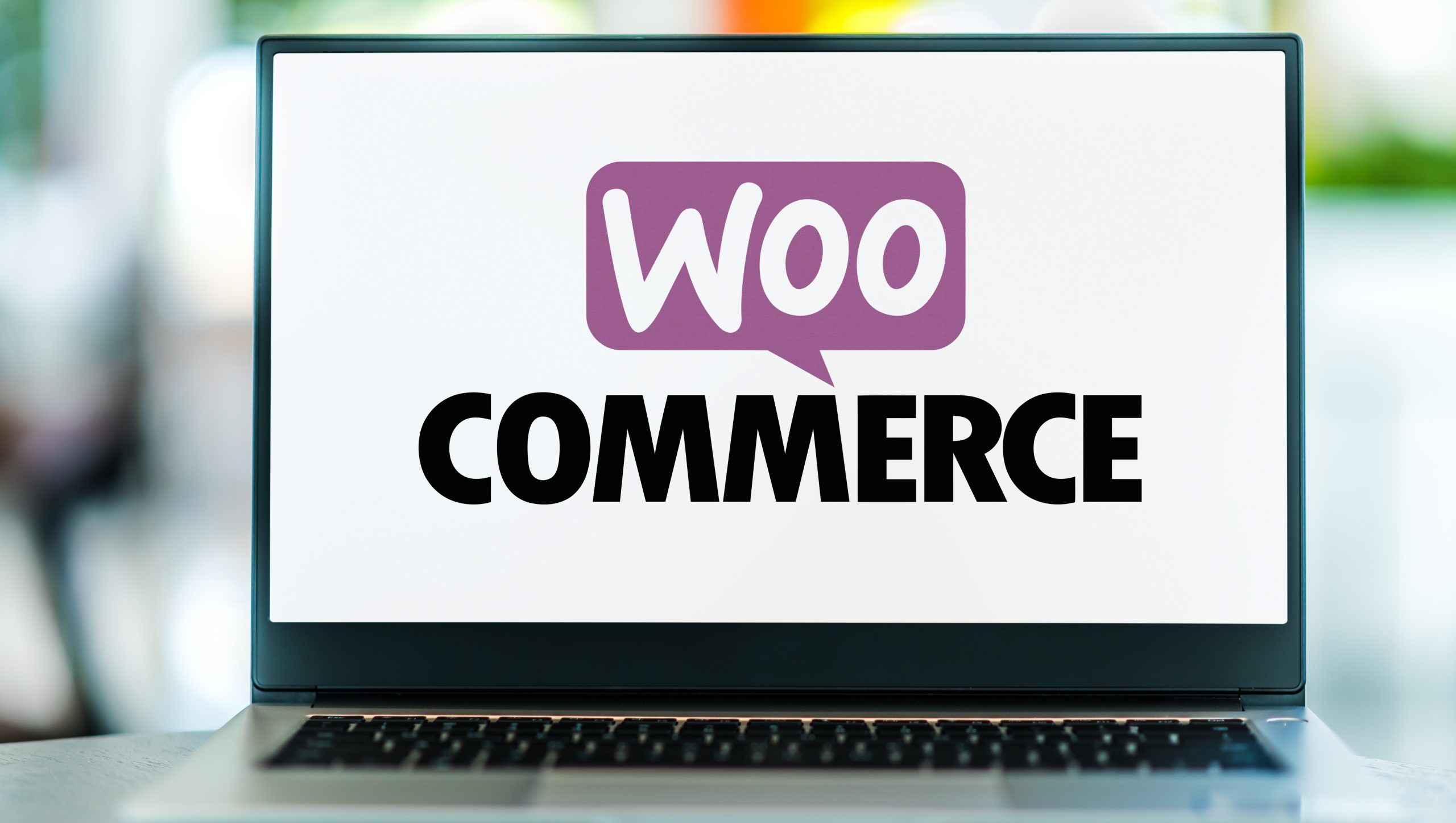The 8 best ecommerce platforms for your business
Manufacturing businesses need to focus on circular supply chains in order to ensure that they’re generating less waste and material redundancy, as they move away from the increasingly unproductive linear model.

Ioana Neamt

Choosing the right e-commerce platform for your retail or wholesale business is as easy as rolling the dice and letting fate decide. Just kidding, this is a serious decision that can have a big impact on your bottom line and the relationship you establish with your customers. The good news is that there are various great options for you to choose from. You just have to know what exactly you’re looking for.
It sounds easy enough, but narrowing down the list and figuring out what your priorities from a business perspective are, can often pose a challenge. So, we thought we’d lend a helping hand by doing some research and crafting a list of the best e-commerce platforms out there today.
But which one is right for you?
Let’s start by figuring out your needs. From e-commerce inventory management to boosting sales and upgrading the customer experience, these platforms have you covered.
Choosing the best e-commerce platform for your business needs
The first step in selecting an e-commerce platform that works for you is pinpointing the features that are vital to your business. Your specific needs will vary depending on the size of your business, the type and amount of products you sell, your budget, cybersecurity needs, and so on. Below are the most common factors impacting the decision-making process:
- Pricing — This is a no-brainer if you run a small company or you’re in the early stages of building a business. Your budget will be your top priority in this case, so you’ll want to look at these platforms and their monthly fees, as well as their processing fees and any other additional expenses.
- Features and capabilities — Each one of the platforms on our list comes with a number of similar features, but some of them offer extra services that might be relevant to your business. These might include dropshipping integrations, marketing tools, a free domain name or website builder, encryption and cybersecurity features, and more.
- Customization — If you want an e-commerce platform that allows you to customize your website, add different design features, or choose an awesome template or theme that fits your brand, you’ll want to make sure the platform you choose provides these services.
- Ease of use — In this day and age, convenience and accessibility should be top priorities when building an e-commerce website. You’ll want to make sure your new website is SEO-friendly and easy to navigate and use on desktop and mobile, so look for platforms that offer this advantage.

The best e-commerce platforms to choose from
Now that we’ve gone over some of the crucial factors to consider when choosing an e-commerce platform for your business, it’s time to check out some options. After years of experience researching and working with such platforms, these are our top picks, and we suggest you give them a try.
1. Shopify
Starting price: $29 per month (paid annually)
Shopify is one of the most popular e-commerce platforms for both small and large businesses, and for good reason. This tool has been around for many years, and with regular updates, it keeps getting better, faster, and more secure. It’s also a great pick for small businesses because it’s easy to use and boasts an intuitive interface, so you can get your page up and running in no time.
At the same time, you also have the option to expand your offerings by setting up additional Shopify stores. There’s a three-day free trial to get you started, but it won’t take you that long to learn the ins and outs of the platform. Building and customizing your website, adding products, and setting up payments are easy to do, even if you’re new at this kind of thing.
Pros
- Easy to use, intuitive interface
- Various third-party integrations (Amazon, QuickBooks, Etsy, HubSpot, etc.)
- Support both online and physical sales (Shopify payments, PayPal, Braintree, Stripe, etc.)
Cons
- Price can climb quickly when adding extra features
- Not as customizable as other platforms on the list
2. WooCommerce
Starting price: Free for standard features on a self-hosted WordPress site + extensions starting from $39 per month
Ah, who doesn’t love good old WordPress? For some, dealing with WordPress can be downright excruciating, but the reality is that most websites today continue to rely on this platform, like it or not. If that’s the case for you, then WooCommerce is the place to start. Sure, using an e-commerce platform that allows you to build your website from scratch can be more straightforward, but if you already have a website set up in WordPress, you don’t have to start all over again. WooCommerce is here to help!
All you need to do is make sure that you’re using a WordPress theme that supports the WooCommerce plugin.
The standard features are free to use, so you can start integrating WooCommerce with your existing website right away and start using it to sell your products and services, manage your stock, and more. You also have access to a wide array of plugins and extensions, but they aren’t free, so as your business expands and you keep adding features, the total cost of using WooCommerce might get pretty high.
Pros
- Best-in-class customization options
- Website building flexibility
- Free standard features
Cons
- Restricted to WordPress
- Extensions can be pricey
- Requires more experience building websites

3. BigCommerce
Starting price: $29 per month (billed annually)
If you’re well past the early days of your business, and you need a heavy-duty platform to help you sell all of the products in your inventory, then BigCommerce is the one for you. The name pretty much sums it all up — this is a platform meant to handle big sale volumes and a wide range of products. It’s what big players like Black Diamond and Johnnie Walker use, so it’s a very popular choice among enterprises and multinational companies.
This tool is great if you need to build your website from scratch, as well, featuring an integrated website builder feature that’s quite easy to use, even if you’re not an expert.
Other standout features include abandoned cart recovery, which is available for premium plan users, drag-and-drop functionality, and a good suite of analytics tools. However, if you need these extra features, your monthly bill will add up, so you’ll have to weigh the pros and cons.
Pros
- Website builder included
- Analytics tools
- Abandoned cart recovery
Cons
- Can get expensive
- Might be overkill for small businesses
4. Wix
Starting price: free basic plan + Business Basic plan from $27 per month (billed annually)
Wix is another great option if you’re looking for a solid e-commerce platform to kickstart your retail business. It’s a great all-in-one website builder that features an awesome, highly customizable drag-and-drop editor, abandoned cart recovery, and various other cool features. It’s super easy to use and offers a wide variety of templates and features, although some of these features might require a paid plan.
The downside is that it doesn’t provide a lot of storage space (limited to 50GB), so if you have a lot of products in your inventory and a lot of visual content to upload, you might reach this limit fast. If you do go for unlimited storage, the monthly fee will jump to $159 per month, which can be challenging if you have a tight budget.
Pros
- Best-in-class drag-and-drop functionality
- Highly customizable
- Abandoned cart recovery
- Free basic plan
Cons
- No inventory management features
- The free plan doesn’t include tracking and analytics
- Limited storage space for basic plans
5. Squarespace
Starting price: $23 per month (billed annually)
If design and aesthetics are essential factors for you, and you want your e-commerce website to look polished and professional, then Squarespace is worth checking out. It offers professional, award-winning templates that will elevate the look and feel of your website to top standards. Additionally, it also comes with free domain and SSL certificate features, inventory tracking and management features, and a lot more.
The downside is that it doesn’t offer a free plan, and the basic plan doesn’t include all of the features you might need for an e-commerce business, like abandoned cart recovery. The basic plan offers a point-of-sale (POS) option, as well as analytics tools, but you’ll have to upgrade to the Advanced Commerce plan if you need more features and capabilities, and this will cost you $49 per month.
Pros
- Free website domain, SSL certificate
- Awesome templates to choose from
- Inventory management features
- No transaction fees
Cons
- Not an e-commerce-focused platform
- No free plan available
- Limited capabilities on the basic business plan
6. Weebly
Starting price: $10 per month (billed annually)
A great option for e-commerce beginners Weebly offers a basic package to get your business off the ground in no time. It features a free basic plan, unlimited storage and items, a free domain name and SSL certificate, as well as an automated shipping and tax calculator. It’s a great set of features that can help you manage your inventory and see how unsold items affect your taxes. Disadvantages do exist, however.
Themes are not all as high quality as we’d like, search engine optimization is quite basic, you have limited customization options, and you can’t connect a custom existing domain to the free plan. If you do want access to more features, you’ll have to opt for a basic plan starting at $10 per month, which is still very affordable compared to other platforms. At the same time, even the paid plan lacks some essential features, so as your business evolves and expands, Weebly might not be enough for you.
Pros
- Free basic plan
- Unlimited storage and items
- Free domain name and SSL certificate
- Integrated shipping and tax calculator
Cons
- Lower-quality themes
- Limited customization options
- Not very SEO-friendly
- Can’t connect a custom domain to a free plan

7. Ecwid
Starting price: free plan + paid plan from $14 per month (paid annually)
If you’re just looking to test the waters and are still in the early stages of your e-commerce business, then Ecwid might be the right fit for you. It offers a free basic plan with no transaction fees, so you can get your feet wet in the world of e-commerce. However, when we say ‘basic,’ we mean it. The free plan limits you to only 5 products, and lacks essential features like inventory management and tracking, multichannel sales, integrated payments options, and customization options. If you need any of these things, you’ll have to opt for a paid plan.
But even with the upgrade, Ecwid still feels a bit unpolished compared to other platforms on the list. The name also tells you another important thing about this platform: Ecwid stands for ‘e-commerce widget.’ This means that it only works on existing websites by adding a code to a site built in WordPress, for example, but it doesn’t include a website builder.
Pros
- Free basic plan
- No transaction fees
- Inventory management features (except for the free plan)
- Multichannel sales enabled on paid plans
Cons
- Limited design options
- Limited capabilities on the free plan
- The free plan is limited to just 5 products
- Works only on existing websites or blogs
8. Shift4 Shop
Starting price: free plan + paid plan from $29 per month
If you’re based in the U.S. and have a relatively tight budget, you might want to check out Shift4 Shop. If you’re willing to use their credit card processing tool, you won’t need a paid plan, and you can just stick to the free plan, which is a solid option for beginners. You get unlimited items and bandwidth, 100 free themes to choose from, fraud protection capabilities, and an intuitive interface.
However, if you want to run payments through other apps, like PayPal, you’ll have to upgrade to a paid plan, but even this might not be enough. Paid plans are capped at $100,000 per year in sales, so if your business grows and sales exceed that number, you’ll have to switch to another platform. Customization options are also limited, so you won’t have a lot of room to play around with themes or add extra features to your liking, so that’s something to keep in mind.
Pros
- A solid free plan available
- Unlimited users, items, and bandwidth
- Over 100 free themes available
- Fraud protection features
- Easy to use
Cons
- Limited customization options
- Paid plans have a $100,000 yearly limit in sales
- Only available in the U.S.
E-commerce platforms FAQs
What are the main factors to consider when choosing an e-commerce platform?
- Ease of use
- Scalability as your business grows
- Diverse payment options
- Security
- Customization and design options
- Integration capabilities
- Mobile responsiveness
- Customer support options
- SEO features
- Costs and fees
Which are the best e-commerce platforms to choose from in 2024?
- Shopify — Best all-rounder
- WooCommerce — Best for WordPress websites
- BigCommerce — Best for large inventories
- Wix — Best drag-and-drop editor
- Squarespace — Best website templates
- Weebly — Best value
- Ecwid — Best for transaction fees
- Shift4 Shop — Best free e-commerce option
Take your e-commerce business to the next level with Katana

Most of these platforms have what you need when starting off, but once your business starts to grow, you want to invest in an external platform to take care of your inventory management, production, demand planning, and the like.
Katana is a cloud inventory management software that helps you deliver precise stock-level information to online customers and consolidate sales across channels. Our open API allows seamless integration with various e-commerce platforms, including the ones on this list, enabling you to enhance the order fulfillment process and keep customers happy. Get in touch with us to learn more about how Katana can boost your e-commerce business.

Ioana Neamt
Table of contents
Get inventory trends, news, and tips every month
Get visibility over your sales and stock
Wave goodbye to uncertainty with Katana Cloud Inventory — AI-powered for total inventory control